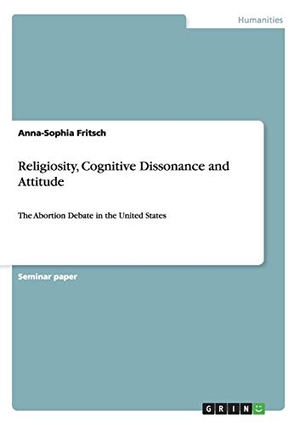Für statistische Zwecke und um bestmögliche Funktionalität zu bieten, speichert diese Website Cookies auf Ihrem Gerät. Das Speichern von Cookies kann in den Browser-Einstellungen deaktiviert werden. Wenn Sie die Website weiter nutzen, stimmen Sie der Verwendung von Cookies zu.
Cookie akzeptieren
Anna-Sophia Fritsch
Religiosity, Cognitive Dissonance and Attitude
- GRIN Verlag
- 2012
- Taschenbuch
- 32 Seiten
- ISBN 9783656171928
Seminar paper from the year 2011 in the subject Psychology - Miscellaneous, grade: A, Norwegian University of Science and Technology (Psychological Institute), course: Introduction to Individual and Context, language: English, abstract: In the United States of America, a high degree of attention has been paid to the issue of how to legislate abortion. During the past two decades, notions of the so-called "Culture-Wars" emerged, referring to an increasing polarization of the American public over the abortion topic along the lines of religiously motivated "pro-life" and secular "pro-choice" activist groups. This paper is an effort to analyze from a psychological perspective how religiosity mediates people's attitudes towards
Mehr
Weniger
zzgl. Versand
in Kürze